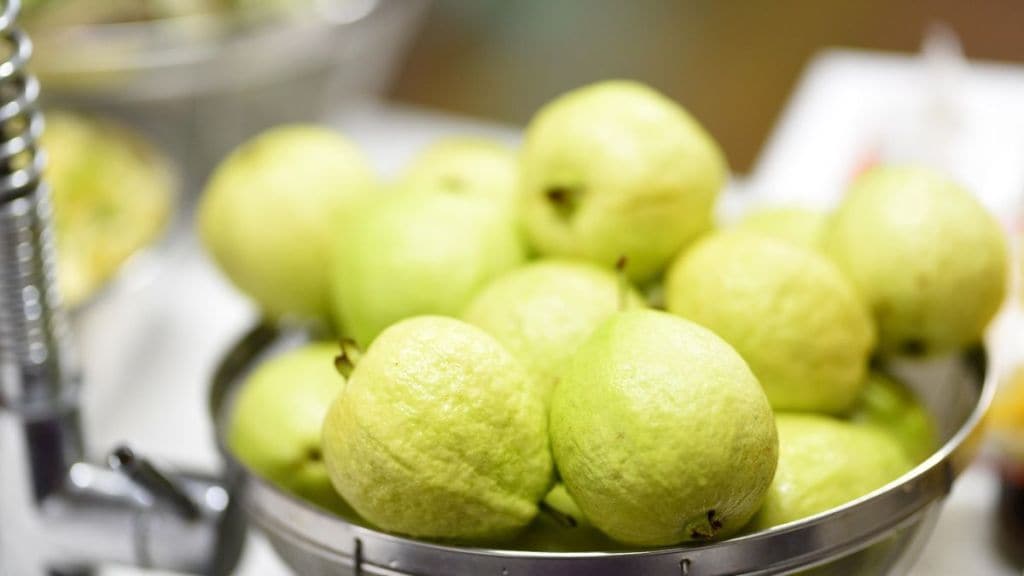Eating a guava a day can work wonders for your health. One of the richest natural sources of Vitamin C, the superfruit is also loaded with dietary fibre, making it a powerhouse of nutrition that supports immune health, digestion, and overall well-being. Now, a latest study has discovered yet another hidden superpower of guavas – protection from liver cancer.
Researchers at the University of Delaware have unlocked a new way to synthesize cancer-fighting molecules found in guava plants. Their work, published in the international journal Angewandte Chemie delves into an innovative new way that can recreate powerful molecules from guava plants for liver cancer treatment. The new method can provide a low-cost recipe for scientists worldwide, potentially transforming cancer treatment.
Nature hides cure to many ailments in its compounds. The study says the bark of willow trees is nature’s aspirin due to its chemical called salicin which the human body converts to salicylic acid, relieving pain and fighting fevers.
A new method to make cancer treatments more affordable
In the new research led by William Chain, associate professor in the University of Delaware’s Department of Chemistry and Biochemistry, and his lab, scientists invented a pathway that uses widely available chemicals to create molecules found in a guava plant known to fight these deadly cancers through a process called natural product total synthesis.
The easy and low-cost method promises to make cancer treatments cheaper and more effective.
“The majority of clinically approved medicines are either made from a natural product or are based on one,” Chain said. “But there aren’t enough natural resources to make enough treatments. Now chemists will be able to take our manuscripts and basically follow our ‘recipe’ and they can make it themselves.”
What is liver cancer
Liver cancer begins in the cells of the liver, the organ that sits in the upper right portion of the abdomen. The most common type of liver cancer is hepatocellular carcinoma, which begins in the main type of liver cell (hepatocyte), according to Mayo Clinic.
The common signs and symptoms of liver cancer are upper abdominal pain, nausea and vomiting, abdominal swelling, yellow discoloration of your skin, loss of appetite and weight among others.
Liver and bile duct cancer cases has been on rise in recent years, with one in 125 men and women globally projected to be diagnosed with hepatocellular cancer over the course of their lives.


